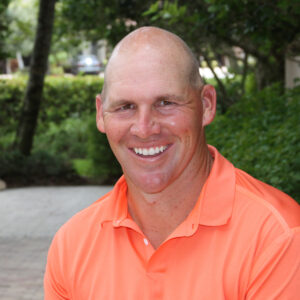I’ve (Nick) been inspired to write my principles down by the words of John Wooden, the famous basketball coach and one of the biggest coaching authorities in our era. Wooden said: “I believe more in the concepts and principles and less in solutions for any specific situation. If the former is good, the latter comes naturally”. This is one of the most important coaching quotes for me because it explains a lot and explains something very essential in coaching.
My first principle is called Power of Basics.
First, is that every complex game pattern in tennis depends on the quality of basic shots. For example, if a player cannot hit a backhand down the line under pressure, every tactical pattern that comes with that backhand down the line makes no sense.
Second, point that a lot of people have a tendency to make things complex and sometimes this is not necessary. People make things complex because they want to sell them. Basics are very hard to sell. From the other side, there is a concept called “Hiding Behind Complexity”. This talks about how people are looking for something to hide behind, while they are actually failing at the very basics. Complexity gives us excuses and sometimes ways out, but many times what really matters is just to show up and do your work.
Finally, my last point here is about coaching. Good coaching is important, but at the end it all comes down to how well players are able to execute the basics. So, it’s great to be able to explain to a player, for example, what’s going on in his/her head or to talk about tactical patterns or game patterns. Also, it’s very important to make a good technical analysis. But for me, it’s only the cherry on the cake. It’s only the final few percent. That’s not going to make someone into a champion.
Let me (Nick) provide you with an example. Rafael Nadal was asked how he practiced his mental toughness. Many might expect him to tell us about a special method. What he said, and I’m quoting:
“You work mentally when you are on the court every day. You don’t complain. You keep the right attitude. You give your best focus to each shot. This is for me mental training.”
These are the basics. They are boring. Sometimes they are not exciting. They are simple, but not easy, and they are crucial. That’s why this is the first of my principles.
My second principle is about choices
This is based on a belief that most tennis matches are won or lost long before they even started. It’s based on a quote from Dr. Deepak Chopra and he says: “Everything that is happening at this moment is a result of the choices we’ve made in the past”.
Tennis matches are won on the practice court, where you show up every day without complaining, on your previous matches, it’s won in the previous matches where you were losing but kept fighting. You didn’t give up in the athletic field where you were running and training and you feelt pain, but you didn’t quit. Believe it or not, even in the restaurant where you order things that you need to order to have the right fuel for the next day, tennis matches are won by showing respect to people that support you. If you don’t make those right choices weeks and months, even sometimes years before eventually you’re going to fail.
My third principle is physical and mental capacity.
I put these two elements together because in some way you can’t really have one without the other. First, physical capacity. This is a must have for every player. From my perspective, it’s not a matter of I can, or I can’t. It’s more a matter of if I want or I don’t want. It’s a simple decision thing. Sorry for being so strict, but this is how I (Nick) see this, and I’m not saying this is easy. It’s far from easy. It’s very hard. But players must take this responsibility and make the most out of what they were given genetically.
Then we have mental capacity. There are two elements of mental capacity. First is mental endurance and second is mental strength. Mental endurance is the ability to keep your focus for longer periods of time or the ability to keep going when you want to quit. By approaching your physical limits in your fitness training, you are also working on that mental muscle because you’re dealing with stress. When you have technical exercises on the court and you keep your focus for longer you are also working on your mental endurance, which is important in tennis. Then we have mental strength, and this is the ability to stay strong in mentally challenging situations. This is where it gets tricky in tennis. You can’t practice this with your physical activity. We’re dealing with fears and emotions. So, this is where most of the players struggle.
I’ll (Nick) tell you one quick story. I was at a tournament a few weeks ago, and the player that I was watching lost in the in three sets. She lost easily in the third set and she played two great sets. The coach approached me after and asked me, why is this happening to her? She’s a good player, but she cannot show it in the important moments. I asked him this:” How many times did she practice her technical and physical skills in the last two weeks?”
He said 5 hours every day, maybe six, except maybe Sunday. I then asked him: “How many times in the last two weeks did you practice mentally challenging situations like the one today?”
And the answer was zero. There we have it, this is a very simple answer to a very complex issue. I told the coach that this player learned something today and if she would be in the same situation tomorrow, she might feel some improvement already. But if and this is where the problem is, if her next mental practice will be in two weeks or three weeks, she will probably fail again. So, our brain is also a muscle that needs to be trained and that is our job as tennis coaches. We need to make sure that our players are spending enough time in emotionally challenging situations. But that’s not enough. We need to hold them accountable for when they are in those situations, hold them accountable for things that they can control, like attitude, body language, et cetera,
That’s the way to improve. When a player is losing in the first round too many times we have to wait for another mental training for too long. So, we as tennis coaches can and has to make some adjustments. First, we need to remake the player’s schedule. Maybe have them play lower-level tournaments where they can get more matches with even higher pressure because you are favored and that’s even better brain training. Second, practice matches are a very underestimated element of training because these days practice matches are more or less like playing a few games, like a warmup. Practice matches can serve as a relatively close simulation of a real match. They need to be approached in the right way, which means don’t play only one set. Play until the match is finished. Prepare for it in the same way that you would for real match and most importantly, hold the player accountable for things that she or he can control.
My 4th principle is repetition
Nothing helps the player to master skills like a quality repetition. The key word here is quality because it includes focus and intensity. Repetition is not enough. You can make two hundred serves and be thinking about something else and you wasted your time. Technical analysis and different coaching methods can help and speed up the process, but after that the player has to go to the court and find his/her own way. Take e.g., timing as a key element, because every player hits a little bit different. One millisecond too early or maybe too late makes the difference between a perfect and, for example an average shot. Timing is the key here, timing is something that I cannot show you, I cannot teach you. You can only feel it by yourself and that’s crucial. That can only be learned by repetition.
My last and 5th principle is called practice what you preach
Many don’t realize how important this can be. Without being a good example with your own personal standards, it’s very hard to get players to buy in to you and your coaching philosophy these days. There’s a point in a relationship between coach and player where the coach has said most of the things, he/she knows. Let’s say most of it is said after 3 months and what’s left is everyday hard work, commitment and routines. It’s all about that. This is where the personal example becomes important. It’s tough to demand from a player something that you are not living up to yourself. Players can feel that. In some other types of teaching, for example, in the classroom where we don’t spend so much time with the students, it might not be that important. But in professional tennis, thirty-five weeks per year with the player. This is where your own example is, a very powerful, and sometimes crucial skill.


